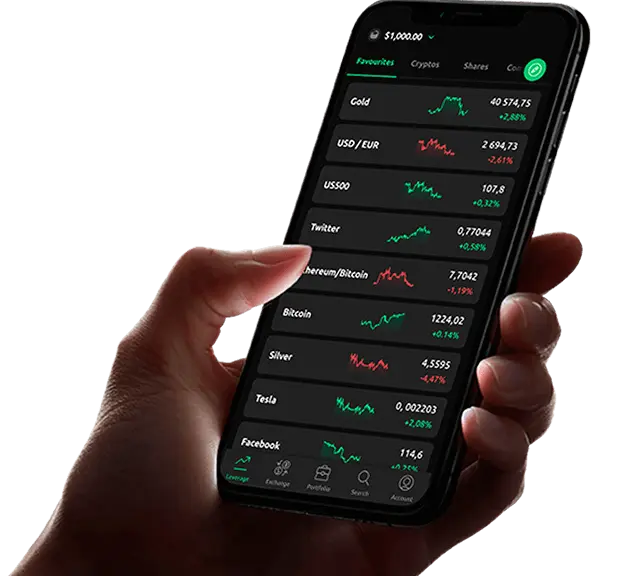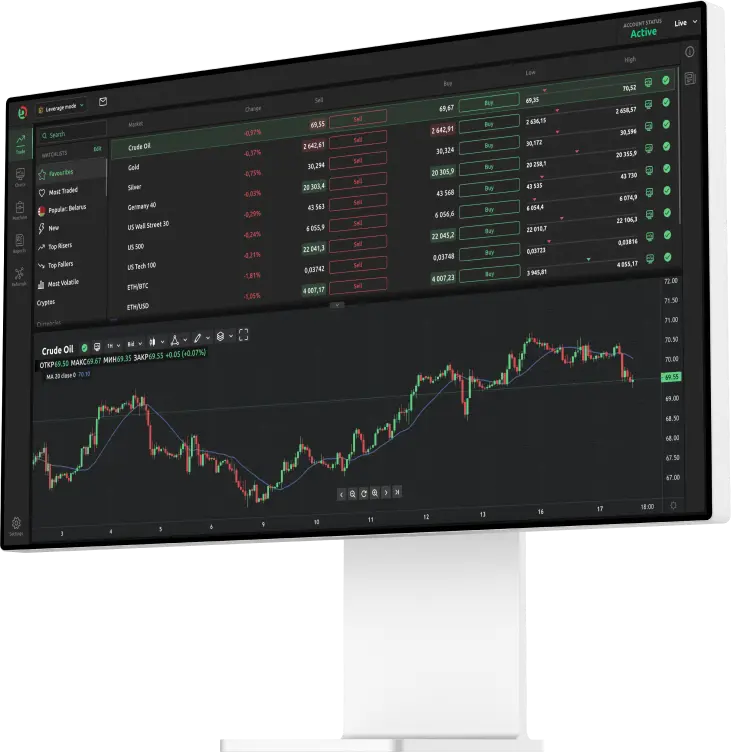How to invest and profit from Bitcoin, Ethereum and Litecoin

Since the mysterious Satoshi Nakamoto brought the humble Bitcoin into existence on January 3, 2009, cryptocurrencies have barely been out of the news. Read our beginners’ guide here.
What are Cryptocurrencies?
In a nutshell, cryptocurrencies are digital currencies. They use cryptography to secure transactions, which makes them very difficult to counterfeit. Unlike central banking systems, cryptocurrencies use decentralised systems usually based on blockchain, which works as a distributed ledger to store information about all of the crypto transactions. The blockchain is enforced by a network of computers all over the world and the cryptocurrencies or coins can be transferred via peer-to-peer (P2P) exchanges.
Altcoins
Since its launch, Bitcoin has since been joined by hundreds of alternative coins known as altcoins, such as Litecoin and Ethereum. There are now more than a thousand cryptocurrencies in circulation with new ones appearing all the time.
And this can be a lucrative business.
Say, for example, you had bought US$100-worth of Bitcoin back on January 1, 2011, when they were just 30 cents a coin.
While you’d have had to endure a bumpy journey as the share price has had a bit of a rollercoaster ride, come February 21, 2019 each Bitcoin was valued at US$3,887, making your humble US$100 now worth an impressive US$1,295,653 (ignoring fees). No wonder cryptocurrencies are increasingly piquing our interest.
How to trade cryptocurrency
Put simply, the first trade you will do is to exchange your cash, also known as fiat money (£, US$, etc) for the crypto coin in which you are interested.
The exchange will now create a wallet in which to store your coins and you can either choose to keep them there, or move them to another exchange.
Hot and cold wallets
There are two types of wallet available to store your crypto coins.
Think of hot wallets as similar to the wallet or purse you carry around. They are very convenient as you can access your funds easily. A hot wallet is always online and you’ll need passport information to access it, making it vulnerable to attack and thus less secure.
Cold wallets are like savings accounts; you don’t have easy access to the funds within them. A cold wallet is always offline until you choose to access it, making it much more difficult to attack. So, the wallet you choose will depend on how often you want to access your funds.
Keys
Both wallet types will provide you with two keys with which to access your funds. The first key is the public key, a code you will give to the exchange when you wish to withdraw funds and this is the one you can share with other people.
The second, private key acts almost as your signature and must be kept private or you risk others being able to access your funds.
Cryptocurrency is highly volatile, which makes it appealing to many investors. But before jumping in, it may be worth taking note of the following points.
Crypto trading tips
Research and learn
Before doing anything, make sure you fully understand the cryptocurrency world. Research the coins in which you’re interested (you can even access relevant All Crypto Whitepapers). Find out what the fees are for the exchange in which you’re interested, how it keeps your information safe (look for two-factor authentication) and assess its reputation.
Know your jargon
With so many acronyms and other baffling jargon in the crypto world it’s worth swotting up, so you’ll know what it means if someone tells you to HODL.
Set your limits
Decide on a disciplined approach before you start and know how long you want to trade for - and never invest more than you can afford to lose.
Watch out for crypto news
Cryptocurrencies are different; you won’t see company reports on them or scheduled press releases that can boost interest and potentially influence the market.
However, when they do make the headlines it can make a significant difference to their price; for example, when Russia announced a ban on cryptocurrency exchanges in 2017, it caused Bitcoin’s value to plummet by 12.5 per cent. So, keep an eye on the news.
Ignore the chatter
While you may hear talk from established investors commenting on the flexibility and security of cryptocurrency, you are certain to hear just as many remarking on how unregulated and over-hyped it is. As long as you’ve researched what you’re doing, simply ignore the chatter and buy and hold what you believe in.
Open a ‘crypto trading-only’ email account
It may sound obvious, but opening a separate email account just for crypto trading purposes (ideally with two-factor authentication) means if hackers break in, they’re limited in the damage they can cause (particularly if that email address contains none of your personal information).
Trade logically, not emotionally
FOMO (Fear Of Missing Out – you’ll know that if you followed point 2) is something we humans fall foul of all too often as we let our emotions influence our actions. Don’t invest in something just because everyone else is; analyse and stay cool and logical.
Trade on your mobile phone
The volatility of the cryptocurrency market means prices can rise and fall very fast. Download a trading app on your mobile phone and wherever you are, you can be ready to participate in all the action.
Spread your risk
Finally, take some advice from the “Oracle of Omaha” himself, Warren Buffet and “don’t put all your eggs in one basket”. All investments are unpredictable and cryptocurrencies are famously volatile. Fill your portfolio with a variety of stocks and you’ll be better able to ride out the ups and downs of the crypto trading market.

